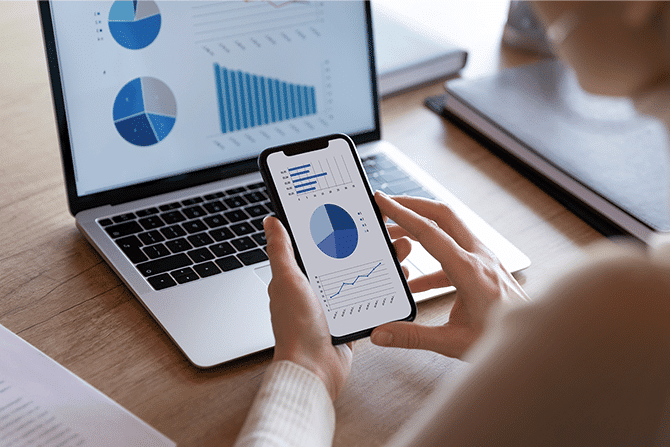Glossary
Data-as-a-Service / Data Service
Data-as-a-Service (or DaaS) is a business model where organizations offer customers and partners access to their data, normally through subscription.
What is Data-as-a-Service?
Data-as-a-Service (or DaaS) is a business model where organizations offer customers and partners access to their data, along with the tools to understand and act on it. This data, normally stored in the cloud, could cover business, production, anonymized customer, mapping or financial data, for example.
There are two main types of organization that adopt DaaS:
- Data specialists, such as providers of company or healthcare information, whose entire business strategy relies on selling access to data
- Organizations that use DaaS to leverage data as an asset to create new business models outside their normal operations or industry. For example:
- A telecoms company selling anonymised customer location information to retailers or hospitality businesses.
- A bank selling anonymised credit card transaction data to tourism organizations, showing the home countries of visitors to specific regions/cities.
Data is normally monetized, although it can be provided as part of existing customer and partner relationships. It is delivered on-demand, via a secure portal where customers can access and interrogate data or is transmitted automatically through APIs to be used within customer IT systems. It can either be charged for on a per access basis, but most often a subscription model is used.
Data-as-a-Service should not be confused with Device-as-a-Service, which shares the same acronym (DaaS).
What are the benefits of Data-as-a-Service?
Data-as-a-Service provides benefits both to those consuming the data (the customer) and those offering the data (the provider).
The benefits to data customers
Customers receive fast, cost-effective access to relevant data that they do not currently possess or that may be too expensive to collect through other means. This can be used to:
- Optimize business processes, particularly when combined with their own internal data
- Better understand the market/customer needs through competitive intelligence on wider trends or demographic behavior
- Drive more-informed decision making, lowering risk through a more complete understanding
- Create new products or services, based on customer/market needs
- Become more agile and work in a more digital and data-driven way
- The benefits to data providers
Through DaaS, data providers, particularly if they are not data specialists, are able to create new business models around data. This leads to:
- New revenue streams based on data, to supplement existing products and services. This can lead to dramatic increases in sales and profits
- The opportunity to differentiate against competitors and build stronger customer relationships through the value-add of providing data alongside other products and services
- Greater collaboration and innovation through data sharing
- The ability to help the common good, such as by sharing information through DaaS with government or healthcare providers.
What are the challenges to Data-as-a-Service?
Data-as-a-Service models face similar challenges to other data sharing strategies, as well as introducing new commercial obstacles to success:
- Data needs to be accurate, complete, high-quality and timely, requiring a strong internal governance strategy
- Data needs to be secure, while companies need to protect the privacy of any customer information within the data they are selling to ensure compliance
- Companies selling data need to protect it from potential theft or unauthorized sharing by customers
- DaaS may be a new venture for traditional businesses, who need to ensure they have the skills, understanding and technology to successfully monetize their data. This could include developing customer relationships in completely new markets that they have not previously operated in.
- Data needs to be supplied through platforms that are intuitive, contain the right tools for successful re-use and it is in the right format for the customer’s specific requirements.
- What infrastructure do you require to offer Data-as-a-Service?
Launching a data service is much more complex than simply opening up data and sharing it with customers or third-party. It requires the following infrastructure to successfully offer DaaS at scale:
- Clearly explained, up-to-date and high-quality data that meets the exact needs of customers
- A single platform that allows customers to access, interrogate and re-use data, containing the right tools for them to get best value from their subscription
- Powerful APIs to automate and scale data sharing
- A billing model and ability to effectively collect payments
- Tools that monitor access to data and ensure security, preventing unauthorized access or data piracy
- A scalable back-end infrastructure that ensures that data access is seamless and fast, no matter how many data users there are.
Learn more

Blog
What are the differences between a business glossary, a data dictionary and a data catalog?
Organizations face an unprecedented explosion in data volumes. However, this information is scattered across the business, in multiple formats, making it difficult to organize, analyze and share. How can organizations gain control over their data and use it effectively?


